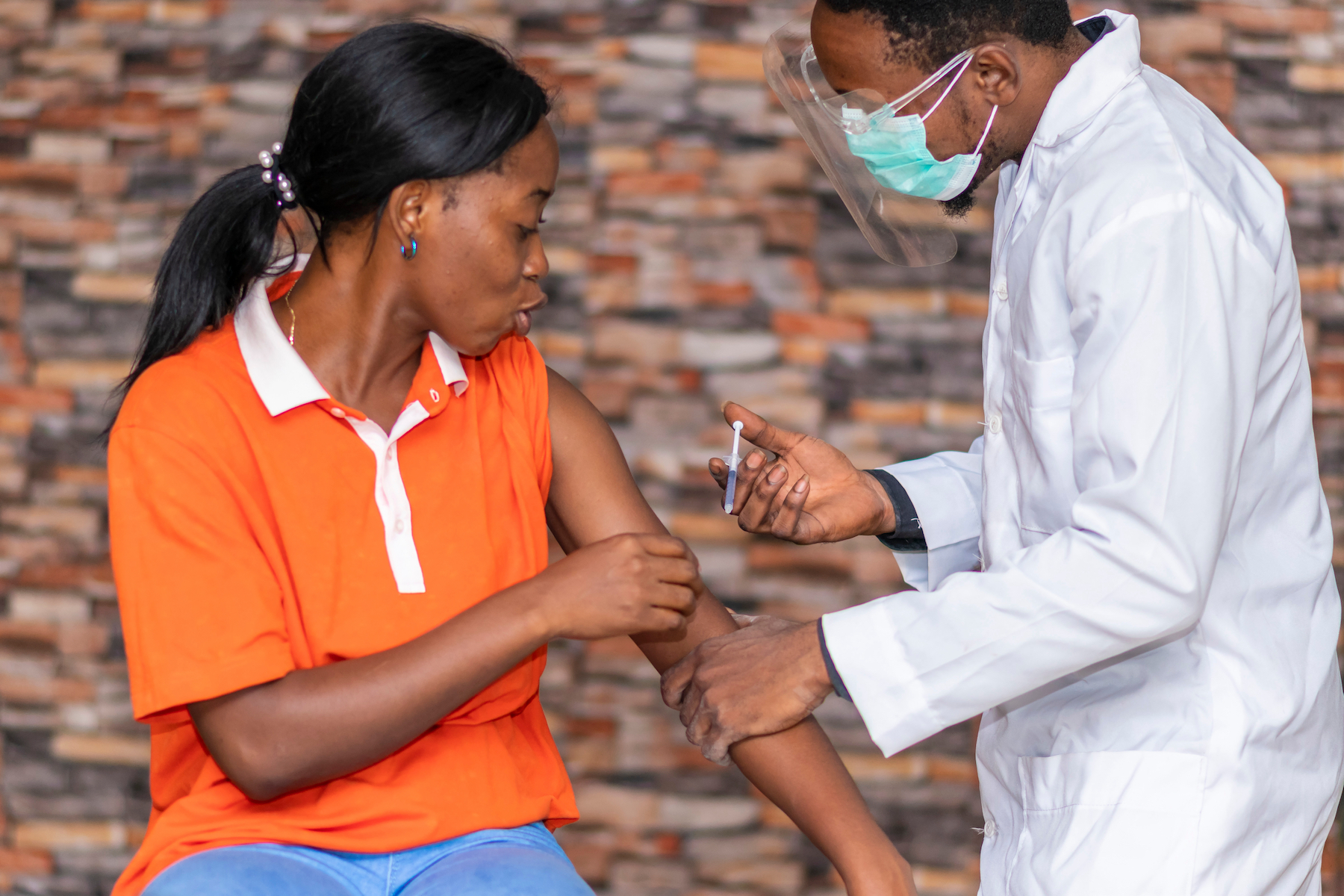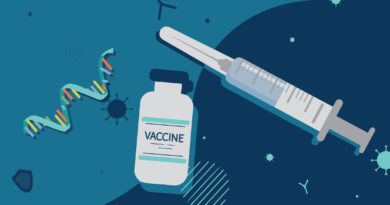Misinformation and religious beliefs drag Africa’s COVID vaccine rate

A wave of misinformation and conspiracy theories spread through social media underlie the COVID-19 vaccine hesitancy in Africa, where just 11 percent of the people have gotten the jab.
Religious beliefs, mistrust of government and the West and a flippant attitude toward the magnitude of the pandemic have also contributed to the overall hesitancy in parts of Africa.
A May 2021 Geopoll survey conducted across six African countries singled out religious beliefs as major catalysts of hesitancy. Some 90 percent of individuals surveyed in Niger and Liberia said that prayer was more effective than the COVID-19 vaccine.
Africans have been described as “notoriously religious,” which might explain why a lot of vaccination misinformation has found its way to pulpits across the continent.
Religion’s tenacious grip on the general populace is well illustrated in the case of Nigeria, where religious leaders have been complicit in the spread of misinformation that inevitably sows the spirit of hesitation among their deferential congregants.
“Nigeria is a religious country with a large Christian and Muslim population and a small fraction of other faiths,” writes Nigerian journalist Obinna Nwuko. “The religious institutions are one of the best ways to inform a large congregation of people because of the loyalty attached to the church. When some religious leaders started branding the virus as devil made and the vaccine as the sign of anti-Christ, most Nigerians have concluded that they will distance themselves from the vaccine and have nothing to do with the virus.”
A distrust of vaccines developed in Western countries has pervaded in Africa for ages. In a 2021 study by the Africa Centers for Disease Control and Prevention, 43 percent of respondents believed that Africans were being used as guinea pigs in vaccine trials. A 2021 survey in Addis Ababa pegged hesitancy on the belief that the COVID vaccine was a biological weapon from developed countries to control population growth. Others surveyed did not believe that COVID-19 exists and they showed a higher degree of unwillingness to go for the jab.
While social media can serve as a great tool for self-education, which could even aid vaccination decision-making, it’s also a rich repository of misinformation, including “anti-vaxx” messaging, incomplete information and inconsistent and complicated scientific information that may be difficult to understand. The Africa CDC study established that people with high levels of hesitancy were more likely to use social media and be exposed to disinformation.
Rumors travel spectacularly fast and widely, particularly on social media. Even ridiculous commentaries can find an audience due to the unfettered freedom of social media platforms.
“Healthcare workers are immunized even without vaccines,” someone opined incorrectly on a WhatsApp bulletin. In yet another instance, a cynical commenter scoffed at a South African news item posted on Facebook: “If it works, then why ship it to Africa instead of first giving it to each and every American???”
As defined by the World Health Organization (WHO) Strategic Advisory Group of Experts on Immunization, vaccine hesitancy is a “delay in acceptance or refusal of vaccination despite the availability of vaccination services.” Vaccine hesitancy in Africa, which is said to be rife even among health workers, is principally driven by concerns about safety, side effects and effectiveness.
Africa suffers a low COVID-19 vaccine uptake, trailing other regions by significant margins, despite a recent uptick in increased vaccine availability. In January, 96 million doses were shipped to the continent — more than double the deliveries made in mid-2021.
And yet, only 11 percent of the continent’s population had been vaccinated by the start of February 2022, notes the World Health Organization (WHO). As things stand, Africa would have to ramp up its COVID-19 vaccinations six-fold to meet the 70 percent target set for mid-2022.
Every week, an average of 6 million people receive the COVID-19 vaccination in Africa. To achieve the 70 percent goal, the number needs to rise to 36 million. With the increased vaccine deliveries to the continent, focus now shifts on the need for African countries to accelerate the vaccine rollout correspondingly.
“Africa is now accessing the vaccines it has demanded for far too long. A dependable pipeline must go hand in hand with operational funding to move doses out of depots and into people’s arms,” said Dr Matshidiso Moeti, WHO Regional Director for Africa.
Other parts of the world have also had to contend with degrees of localized COVID-19 vaccine hesitancy. In Bolivia, for instance, only about 45 percent of the eligible population is fully vaccinated, a phenomenon antithetical to South America’s position as the worlds most vaccinated region. Several factors have been blamed for Bolivia’s lag, including sustained torrents of toxic campaigns by anti-vaxxers — including negative messaging by some churches — a widespread distrust of the healthcare system and a preference for traditional medicine.
Fortunately, the misperceptions and vaccine hesitation in Africa have been determined to be non-static. The GeoPoll survey recorded decreased hesitancy in some of the sampled countries between November 2020 and April 2021. In Mozambique, hesitancy was noted to decrease in late 2020, while in Ghana, hesitancy decreased from 38 percent in August 2020, before vaccines were approved, to just 17 percent in April 2021 upon delivery of the first batch of vaccines.
Other reasons cited for Africa’s slow vaccination rates include poor health infrastructure, limited funding for training and deployment of medical staff and challenges with vaccine storage.
Image: African woman getting the COVID-19 vaccine. Photo: Shutterstock/i_am_zews
Categories
This article has been archived for your research. The original version from Alliance for Science can be found here.


